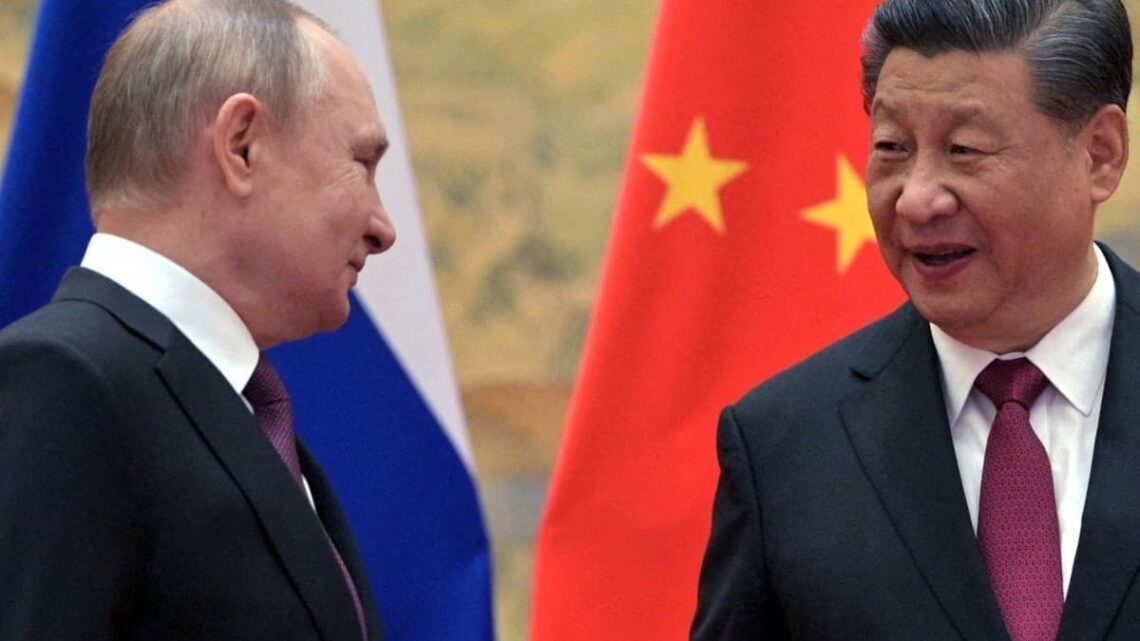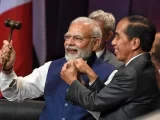
What will the Russian oil price cap do to markets like India, Chinaa
December 3, 2022The Group of Seven will impose a rate cap on Russian oil that’s properly above wherein it now trades. If there has been ever any doubt what the basis of the cap became, it’s now clean: americaA and its allies need Russia’s crude to hold flowing. European Union ambassadors sponsored restricting the rate of Russian oil, a key
supply of earnings for President Vladimir Putin’s conflict machine, at $60 a barrel after fraught talks that dragged into the night time greater than once. Crucially, that’s above the $50 that Russia’s flagship Urals grade already trades at, in line with statistics from Argus Media.
The EU agreed the rate after holdout Poland gave its support, paving the manner for formal approval over the weekend. The G7 and Australia stated in a announcement the rate cap could take impact on December five or very quickly thereafter.
“The key factor in our view is the sign that the G-7 seeks to hold Russian oil at the marketplace,” stated Joel Hancock, an analyst at Natixis. “The marketplace has shifted to a view that Russian crude oil exports will stay greater resilient than formerly predicted and in large part unaffected with the aid of using the rate cap.”
Now, Moscow’s response might be key. Russia has adversarial the measure, and threatened to prevent manufacturing in response. But on Thursday Russian Foreign Minister Sergei Lavrov stated the cap became irrelevant, the most powerful trace but of a likely softening.
With any such beneficiant cap, consumers and dealers can without difficulty declare it’s simply enterprise as usual. “We don’t care what the rate cap might be. We’ll negotiate with our companions directly,” Lavrov stated. “And companions who hold operating with us won’t examine the ones caps.”
The G-7 has primarily determined to prevent its personal imports of Russian crude so the circulate is aimed squarely at different large consumers which include China, India and Turkey. Those international locations have now no longer signed up, however the US hopes they may use the edge as a bargaining chip. Crucially, in the event that they don’t purchase beneathneath the edge, they won’t be capable of get entry to European coverage and shipping.
The plan, pushed with the aid of using the G-7, comes at a time while Europe is combating excessive inflation and vulnerable to a recession. Companies and families are reeling from exorbitant power payments prompted with the aid of using Russia’s invasion of Ukraine, and the OPEC+ alliance is preserving a good rein on deliver. As governments spend billions to stave off a backlash from voters, improved financial dangers at the moment are being taken under consideration in political decision-making.
“The rate cap will inspire the waft of discounted Russian oil onto worldwide markets and is designed to assist guard purchasers and organizations from worldwide deliver disruptions,” US Treasury Secretary Janet Yellen stated in a announcement Friday, after the G-7 introduced its endorsement of the $60 level.
She delivered that although international locations purchase outdoor the cap coalition, it will “allow them to good buy for steeper reductions on Russian oil and gain from more balance in worldwide power markets.”
The EU sanctions agreed in advance this yr had first of all stunned many withinside the marketplace for being so strict. The concept became to prohibit groups from imparting coverage to move Russian oil everywhere withinside the world. It could have intended even Chinese and Indian clients could have needed to discover their personal coverage from Dec. five.
The US argued that the sanctions risked scary a spike in oil fees that could were ruinous for the sector economy, and additionally doubtlessly turn out to be even reaping benefits Putin. The rate cap became a form of off-ramp — the ones offerings could be to be had however most effective for oil bought below the certain level. The concept became to restriction sales however hold the oil flowing to the worldwide economy.
“We assume the variety at $60 a barrel is appropriate” to stability restricting Moscow’s cappotential to income and making sure deliver meets demand, John Kirby, spokesman for americaA National Security Council, stated Friday, including that the cap may be adjusted going forward.
Some in Europe noticed americaA plan as a manner to water down sanctions, and Poland led a set of nations pushing for the cap to be in the direction of manufacturing costs. Shipping countries desired a greater beneficiant level, and the discussions have been frequently fraught as international locations’ pursuits didn’t usually align. For its part, Ukraine stated the extent need to be set as low as $30.
First Doubts
“Given that Urals is presently traded a long way beneathneath the extent of the cap, in precept it can be an excellent deal,” stated Jorge Leon at Rystad Energy. A complicating thing is that oil is priced very in a different way in Asia. There, the important thing ESPO grade is buying and selling at over $70 a barrel. It’s now no longer clean if all that crude will turn out to be below the cap or now no longer.
When the rate cap became first floated as an concept, many notion it unworkable with out key consumers which include India and Turkey on board, or extraterritorial consequences to discourage breaches and incentivize adoption. Now it looks as if americaA can declare a few form of victory if Russia does promote below the ceiling. Washington additionally argues that if Russian oil is already buying and selling at a deep discount, the danger of the rate cap can take a number of the credit. For its part, Poland, after lengthy negotiations, has secured a few greater conditions, such as a assessment mechanism going into subsequent yr.
Still, there stay questions over enforcement, because the EU has watered down its rules, and there aren’t anyt any secondary sanctions to feature teeth. A spat over coverage in Turkey should nonetheless pose problems. And the Kremlin’s response stays a large unknown. “There’s a lot uncertainty certainly over simply how a lot bodily disruption we’ll see to Russian crude supplies,” Neil Beveridge, senior oil analyst at Sanford C. Bernstein, stated in a Bloomberg tv interview. with Bloomberg inputs



